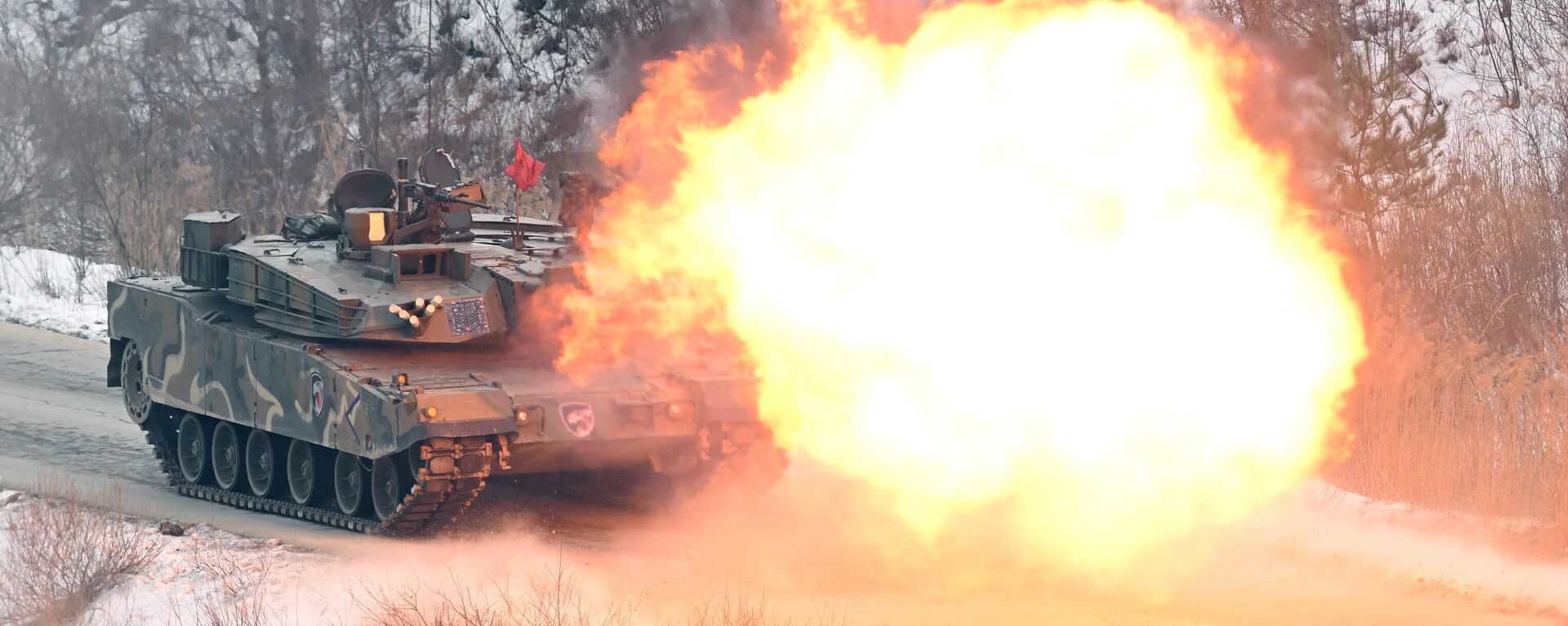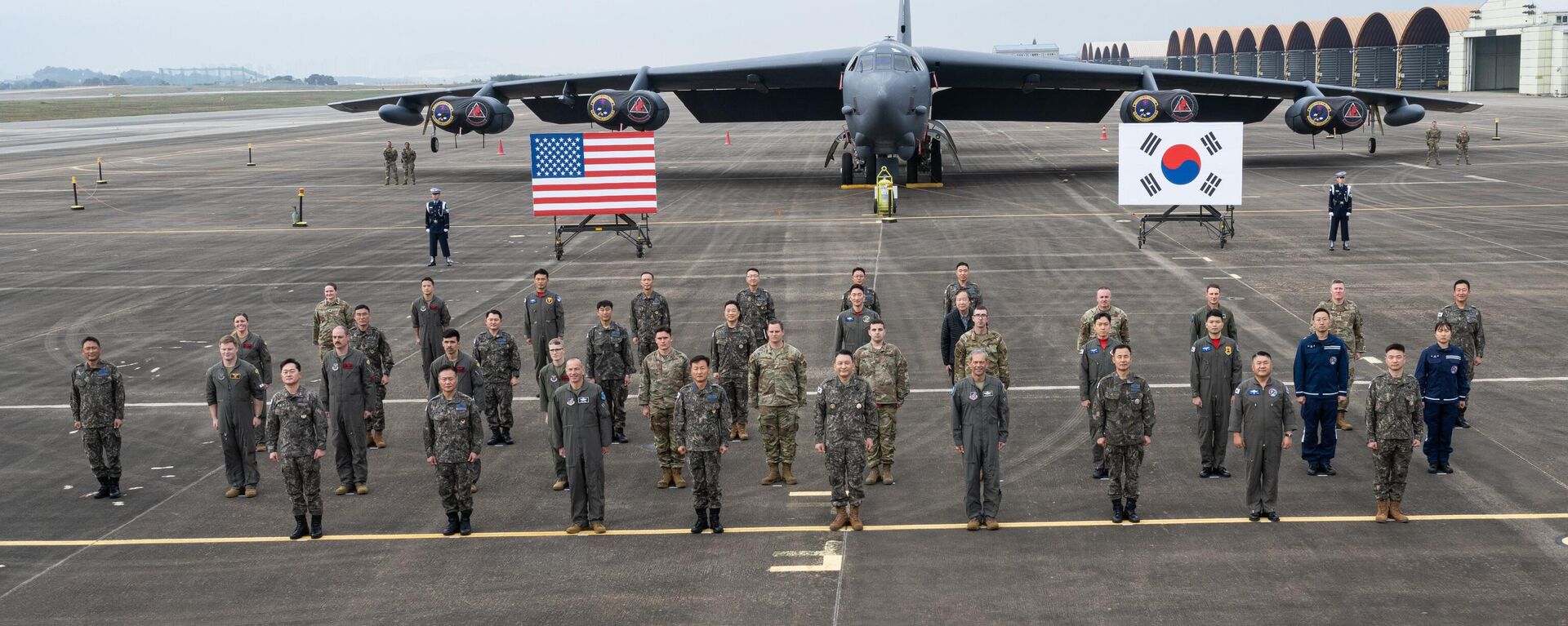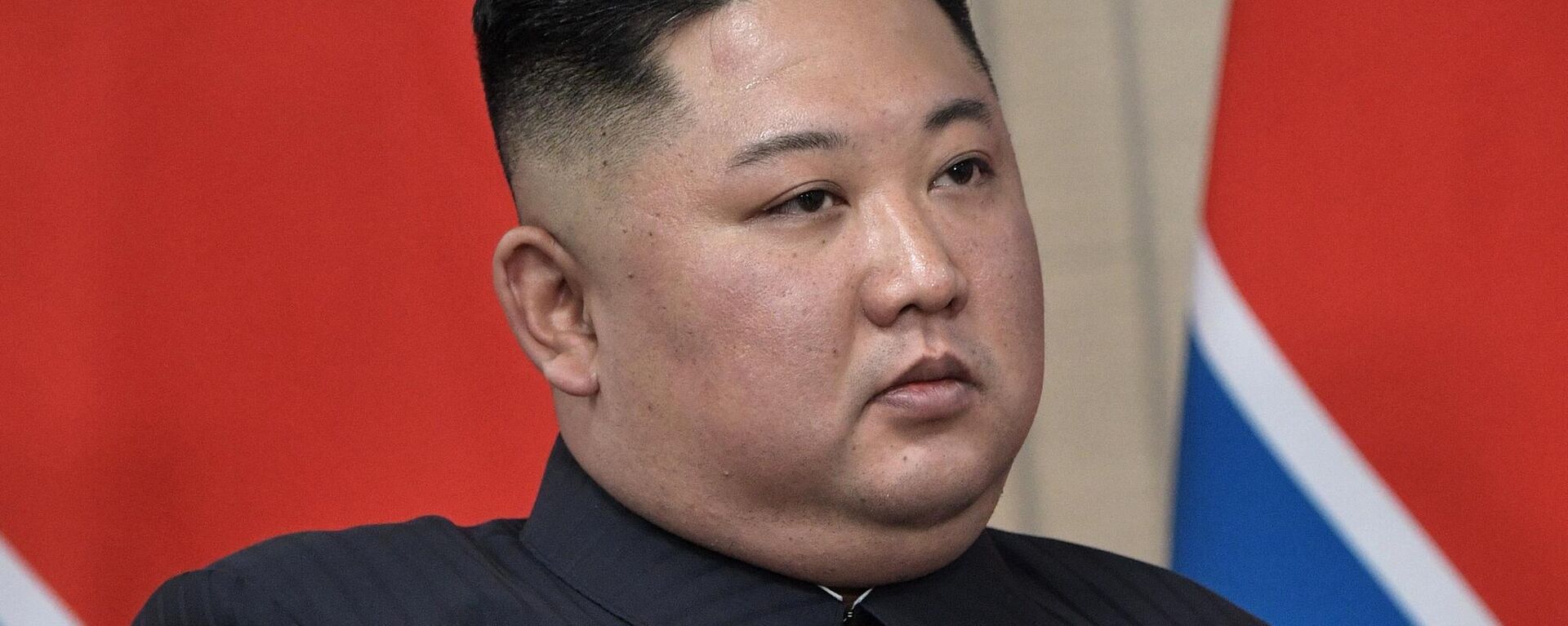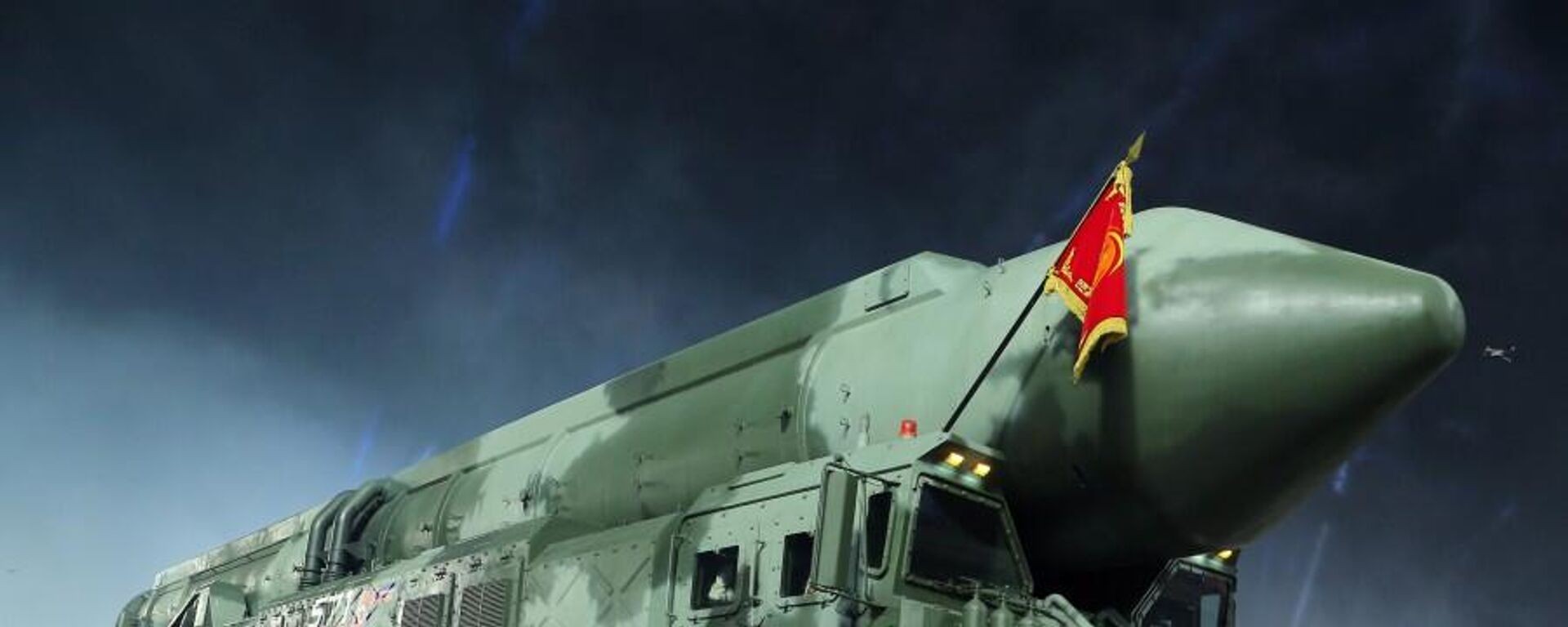Invasion Rehearsals? North Korea Slams Joint US, South Korea & Japan Drills as Tensions Escalate
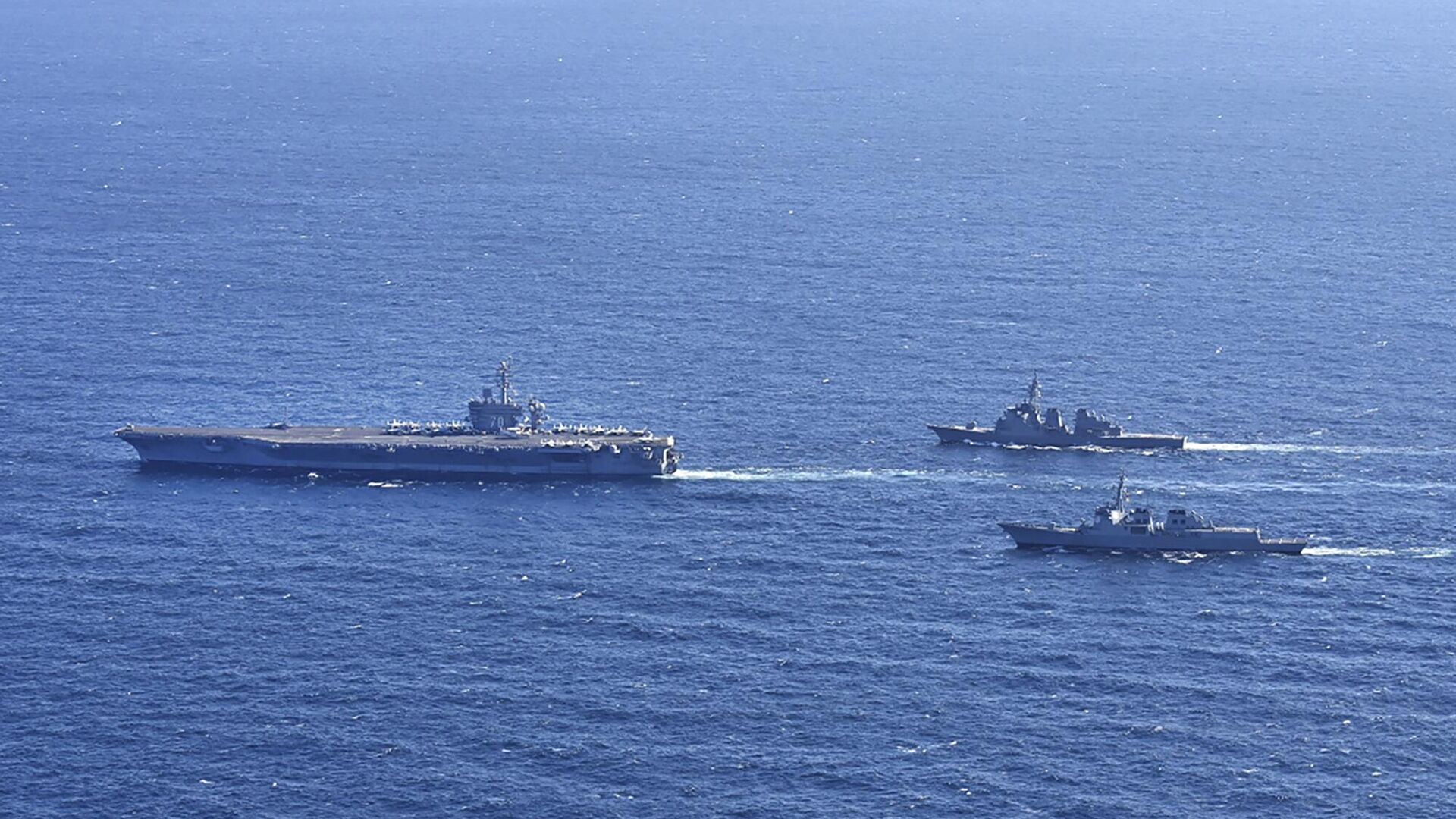
© AP Photo
Subscribe
Amid a surge in joint drills carried out last year by the newly-forged trilateral military alliance of the United States, Japan, and South Korea, the Democratic People's Republic of Korea (DPRK) warned that Washington-backed blocs were no longer hiding their “aggressive and chauvinistic nature,” putting the international UN-based order in jeopardy.
Washington is continuing to fan escalating tensions on the Korean Peninsula, with yet another show of strength unequivocally aimed at North Korea.
As part of the latest provocative run, the United States, South Korea, and Japan have held joint naval exercises involving nine warships. The three-day drills wrapped up on Wednesday in international waters near the South’s Jeju Island, according to the South Korean Ministry of National Defense. Joining American aircraft carrier the USS Carl Vinson and guided-missile cruiser USS Princeton were South Korean and Japanese destroyers equipped with the Aegis missile-defense system.
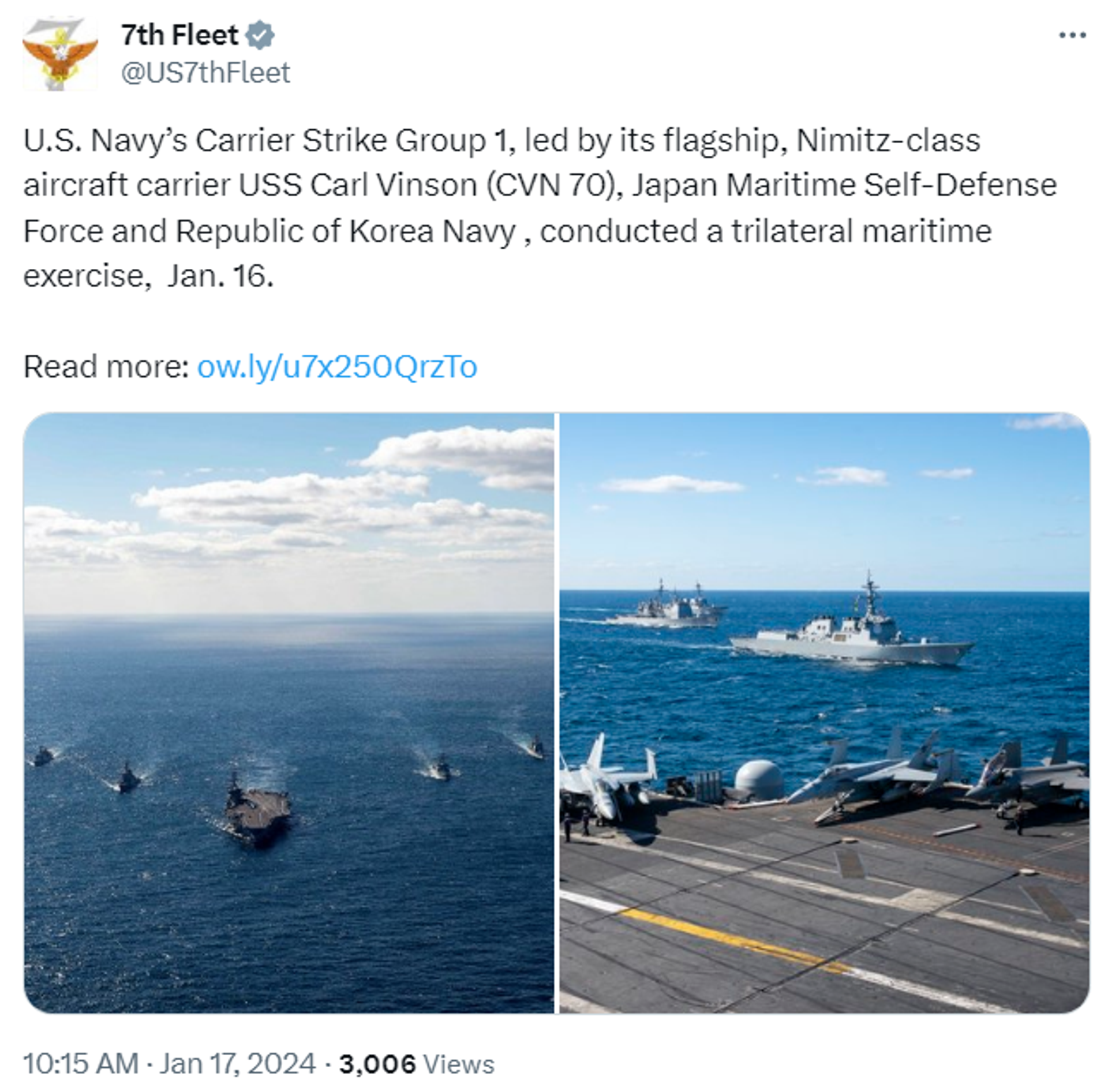
Screenshot of X post by the Seventh Fleet of the United States Navy.
© Photo : US7thFleet/X
'Invasion Rehearsals'
US Navy Region Korea spokeswoman Enjoli Janel Di Patri was cited by media reports as describing the recent drills as "routine" training with "our allies.” But the exercises which North Korean leader Kim Jong Un has denounced as "invasion rehearsals," are hardly the first this year. Earlier in the month, South Korea and the United States conducted joint military drills with live firing near the former's border with North Korea to increase their joint combat readiness amid threats allegedly posed by Pyongyang.
The exercise was launched in the city of Pocheon on December 29 and is scheduled to end on Friday, January 5, media reported, adding that the drills involved a total of 110 weapons systems from the two countries, including K1A2 tanks, A-19 combat aircraft, Stryker armored personnel carriers, and artillery systems.
Last year, the trilateral alliance of the United States, the Republic of Korea (South Korea’s official name), and Japan carried out their first-ever joint aerial drills south of the Korean Peninsula, over waters overlapping both the South Korean and Japanese air defense identification zones. The exercise was dubbed the "Spirit of Camp David" in the wake of a meeting of US President Joe Biden, South Korean President Yoon Suk Yeol, and Japanese Prime Minister Fumio Kishida in August 2023 at Camp David, Maryland.
The exercise saw American, Japanese, and South Korean fighter escorts fly an escort mission alongside a US Air Force nuclear-capable B-52 strategic bomber. The South Korean Air Force characterized the drills as a signal of joint security cooperation “against North Korea’s escalating nuclear and missile threats.” Taking part were US F-16 Fighting Falcons, South Korean F-15Ks, and Japanese Mitsubishi F-2 fighters.
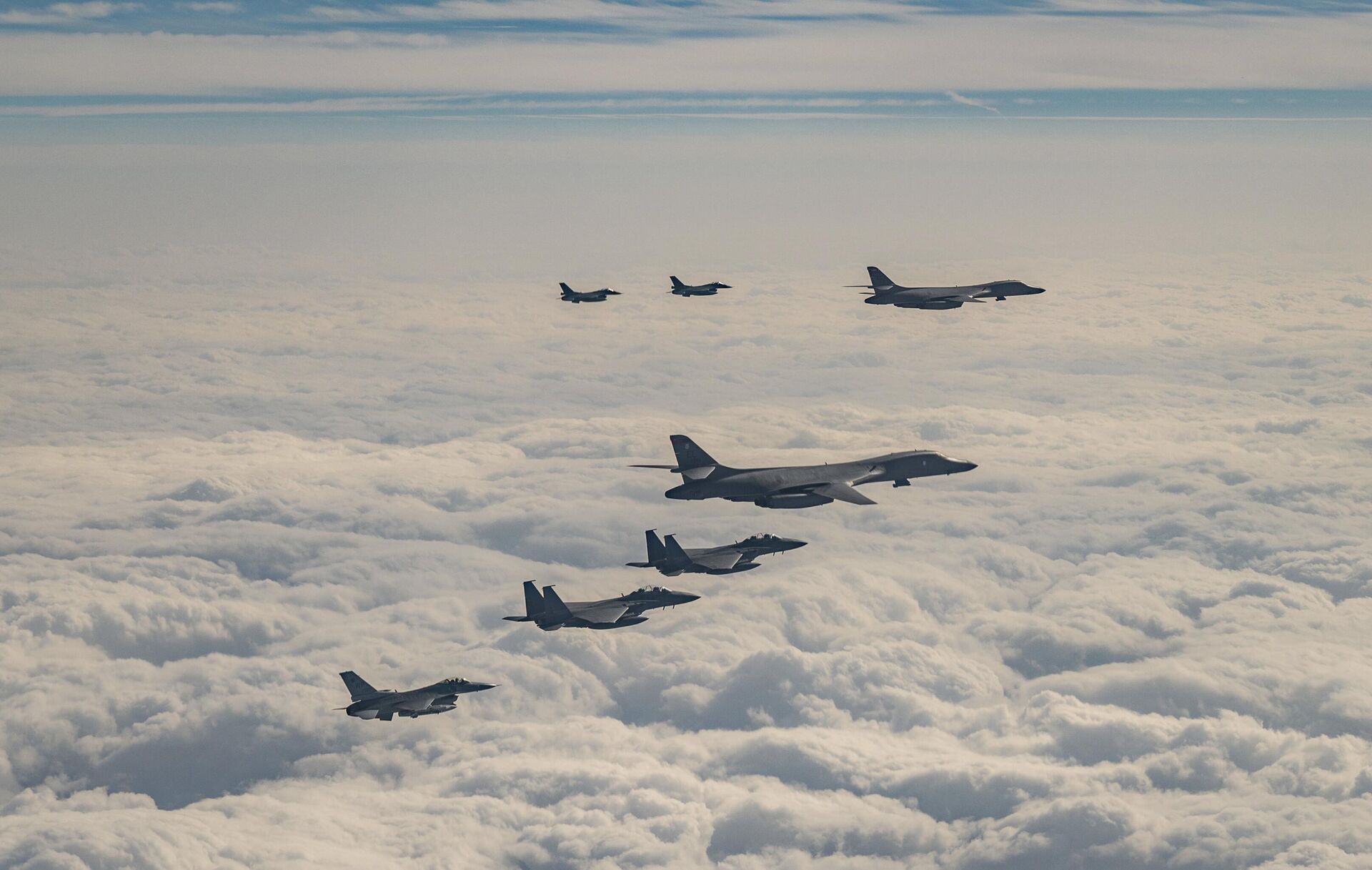
U.S. Air Force B-1B bombers, F-16 fighter jets, South Korean Air Force F-15K fighter jets and Japanese Air Force F-2 fighter jets fly over South Korea's southern island of Jeju during a joint air drill, Wednesday, Dec. 20, 2023 in a show of force against North Korea.
© AP Photo
At the time, the three countries vowed to conduct further “annual, named, multi-domain trilateral exercises on a regular basis.”
North Korea slammed the latest US-South Korea-Japan military drills as an “instigation” threatening the country’s stability.
“The US and its stooges are now buoyed with war fever,” stated a Korean Central News Agency (KCNA) report.
The timing of the new show of force by the US, South Korea, and Japan is particularly noteworthy. It came a day after the North Korean government said that it had successfully launched a solid-fuel medium-range ballistic missile. The DPRK has been ramping up its missile testing in response to the provocative drills held near its nation’s borders. Kim Jong Un has reiterated on numerous occasions that North Korea is building up its forces as an exercise of its right to self-defense.
The missile was equipped with a hypersonic maneuverable controlled warhead, North Korean state-run news agency KCNA reported on Monday. The launch was conducted to check the gliding and maneuvering characteristics of the warhead and the reliability of newly developed multi-stage high-thrust solid propellant engines, the report added. Furthermore, it was noted that the test launch did not affect the security of neighboring countries and had nothing to do with the regional situation. Previously, Pyongyang launched a reportedly Hwasong-18 intercontinental ballistic missile on December 18, 2023.
North Korean leader Kim Jong Un offered a cutting verbal response to actions of the trilateral military alliance, described by North Korea last year as “cancer tumor" undermining the international UN-based order. Kim said in a speech on Monday that South Korea should be designated in the constitution as the number one hostile country, North Korean state-run news agency KCNA. The speech to the Supreme People’s Assembly laid bare the conclusion that unification with the South was no longer possible, and accused Seoul of seeking regime collapse and unification by absorption. As for the South Koreans, Kim Jong Un called them “top class stooges” of the US.
“We don’t want war but we have no intention of avoiding it,” Kim was quoted as saying by KCNA.
Relations between Pyongyang and Seoul deteriorated significantly between 2021 and 2022 with the election of new governments in the US and South Korea. The arrival on the scene of Democratic POTUS Joe Biden, the Republic of Korea's President Yoon Suk Yeol, along with Japan's military-minded Prime Minister Fumio Kishida dramatically altered the geopolitical climate of the highly militarized peninsula.
The "North Korea threat" narrative driven by the US and its allies, along with their military maneuvers, prompted Pyongyang to announce last year that it reserves the right to launch a preemptive attack on strategic forces of the US being transferred to South Korea.
Any US strategic assets deployed in South Korea would become "the first target to be destroyed," and Washington "would be well aware that the Korean peninsula is technically at war," the North Korean state-run news agency reported. It added that gone were the days "when the right to preemptive strike was 'monopoly' of the US."
Any US strategic assets deployed in South Korea would become "the first target to be destroyed," and Washington "would be well aware that the Korean peninsula is technically at war," the North Korean state-run news agency reported. It added that gone were the days "when the right to preemptive strike was 'monopoly' of the US."
The DPRK officially proclaimed itself a nuclear power in September 2022, publishing details on its nuclear doctrine. The latter allows the country to use its nuclear weapons in the event of enemy nuclear aggression, or a potentially “fatal” conventional attack. Furthermore, the doctrine emphasizes that the North Korea’s “powerful means for defending the sovereignty, territorial integrity and fundamental interests of the state” is designed to prevent “a war in the Korean Peninsula and the northeast Asia region and ensur[e] the strategic stability of the world.”

